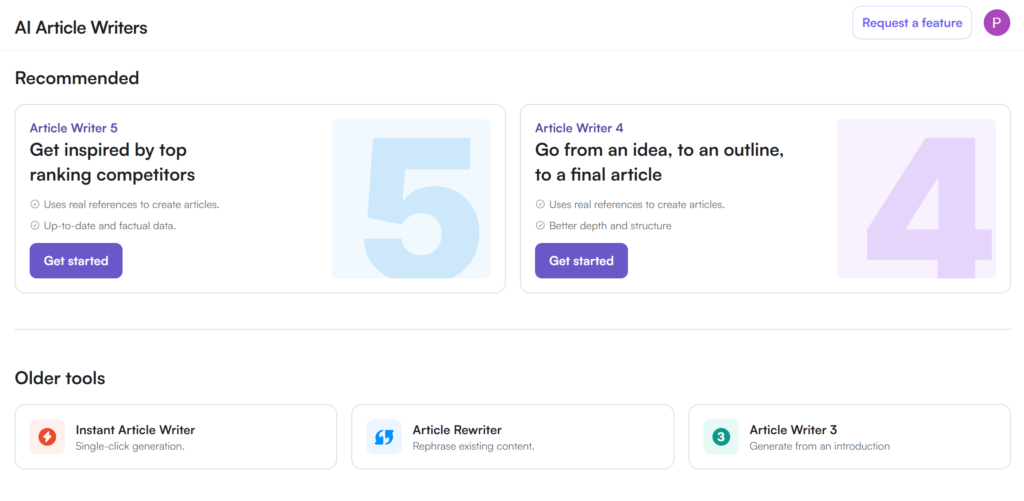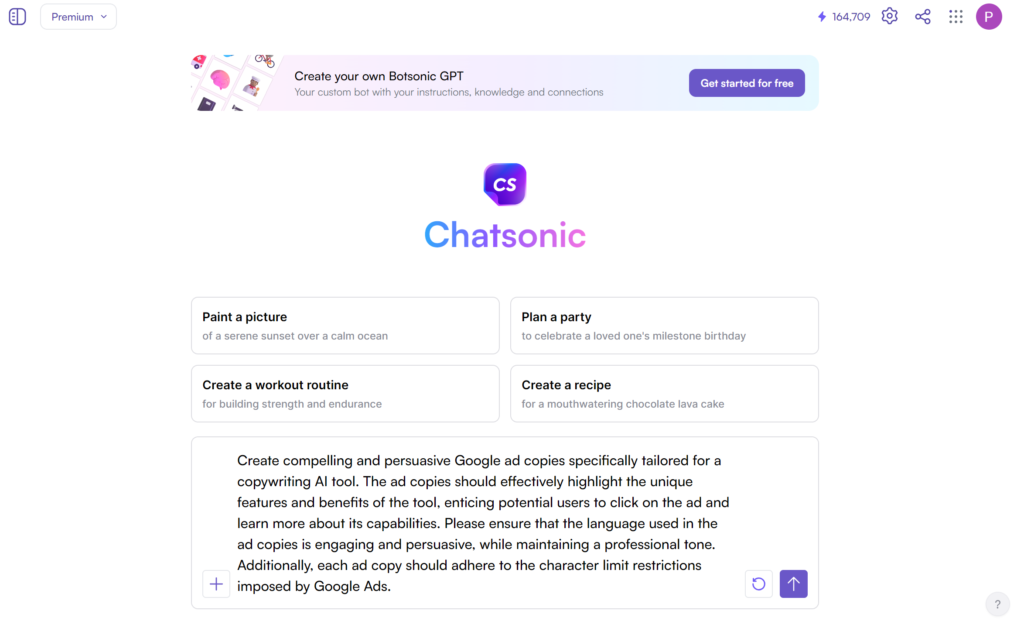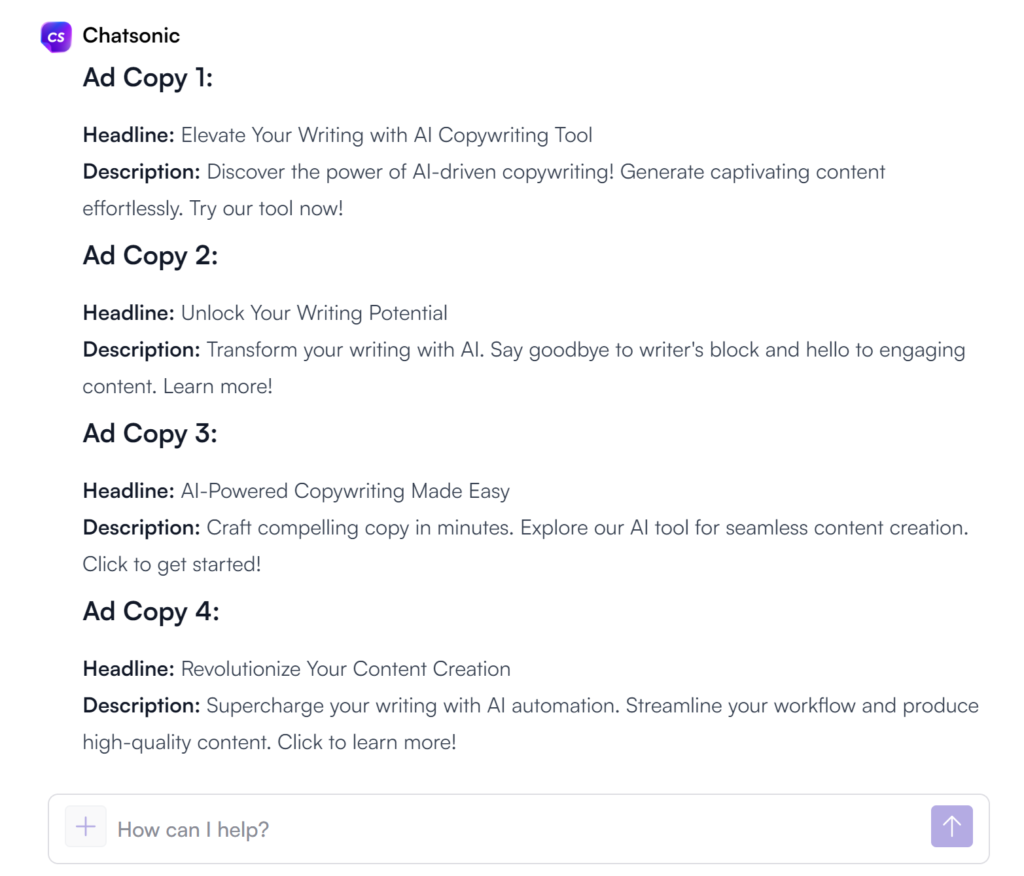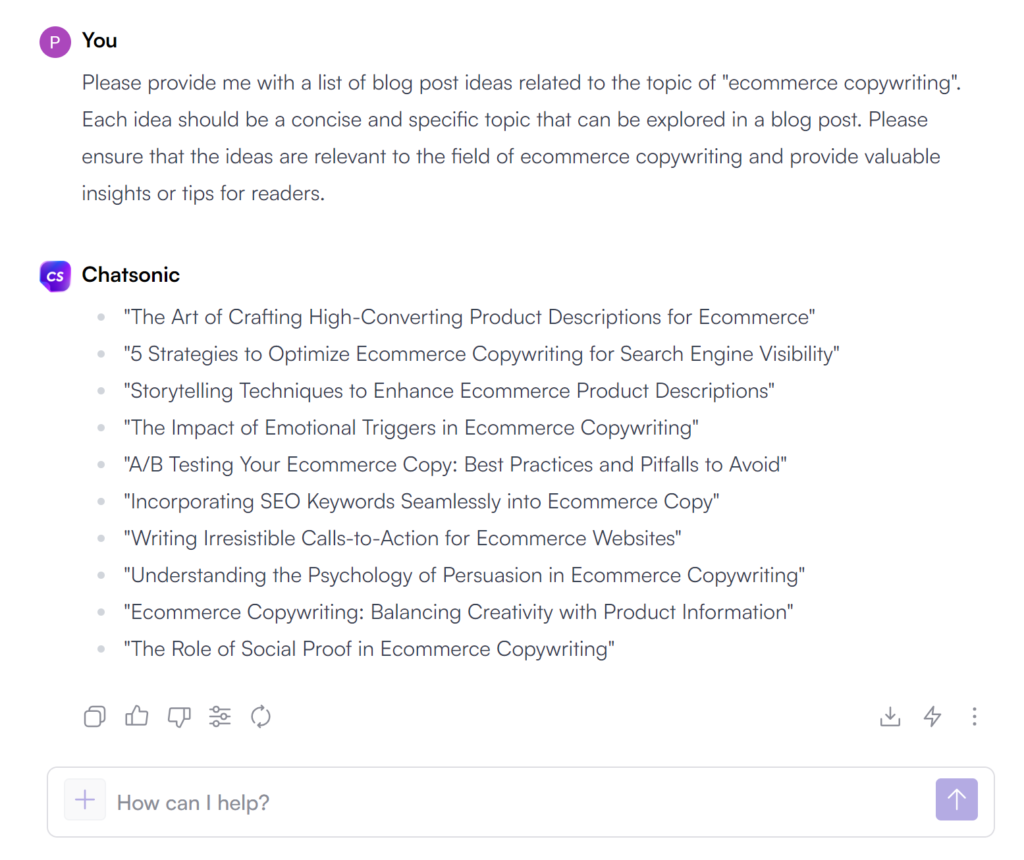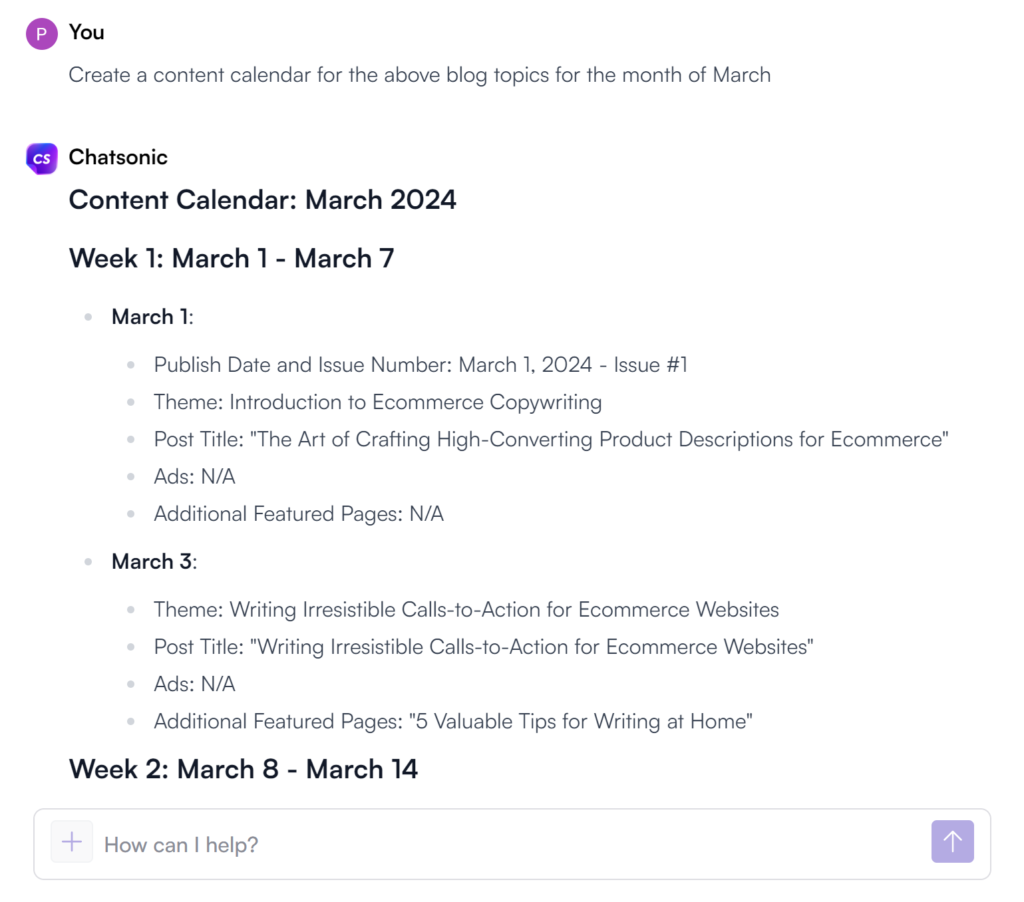The incorporation of Artificial Intelligence into content marketing has become a crucial element, transforming the way content is created and marketed.
The reason for this is because AI advancements create a fairer competition, allowing smaller businesses to have an equal footing against larger ones.
The integration of AI in content creation improves effectiveness, enabling enterprises to generate precise and high-caliber content on a larger scale. Additionally, AI-generated analytics and market research tools empower businesses to fine-tune their approaches and gain an edge in a data-centric era. Those who have adopted AI have seen a rise in revenue, demonstrating its revolutionary influence on digital marketing initiatives.
With the ongoing impact of AI on the digital marketing landscape, businesses that do not incorporate these technologies into their strategies are at risk of lagging behind. By not embracing AI, they may lose out on the benefits of increased efficiency, precision, and strategic advantages in their content production and marketing efforts. In today’s ever-changing world of content marketing, adopting AI is not just a luxury, but a crucial step for maintaining competitiveness.
In this extensive manual, we will explore the realm of content marketing with artificial intelligence, examining its capabilities and offering actionable advice to assist you in mastering this innovative strategy.
Understanding AI Content Marketing
AI content marketing refers to the utilization of artificial intelligence technologies to streamline and enhance different components of content development and promotion. With the help of AI-driven tools and algorithms, marketers can generate content concepts, outline articles, draft content, optimize SEO, and automate marketing tasks. The objective of AI content marketing is to enhance efficiency, productivity, and the overall impact of content marketing strategies.
The Impact of AI on Content Marketing
According to a study by Insider Intelligence, the top advantage reported by 58% of marketers whose companies utilize generative AI for content creation is improved performance.
The emergence of Artificial Intelligence (AI) has brought about significant changes in numerous industries, including content marketing. By utilizing its capacity to process extensive data and generate valuable insights, AI has revolutionized content marketing strategies, enabling faster implementation, predictive analytics, personalized content, and real-time feedback through chatbots.
1. Speed: AI has significantly enhanced the speed of executing content marketing campaigns. By utilizing automated processes like content creation, curation, and distribution, AI-powered tools can produce high-quality content in a fraction of the time it would take for a person to do so. Additionally, AI algorithms can swiftly analyze data and detect trends, empowering marketers to make informed decisions and adapt their strategies in real-time.
2. Increased competition: AI also bridges the gap between large brands with abundant resources and smaller companies with limited resources. With the assistance of AI-driven content creation tools, smaller businesses can expand their content efforts and compete in the digital landscape.
3. Predictive Analytics: The capabilities of AI algorithms to analyze vast amounts of data enable them to predict future trends and consumer behavior. In content marketing, this means that AI can evaluate user data, social media trends, and other relevant information to determine the type of content that will resonate with the target audience. By utilizing predictive analytics, marketers can create content that is more likely to engage users, drive conversions, and accomplish marketing objectives.
4. Personalization: Delivering personalized content is a critical aspect of content marketing, as consumers demand tailored experiences. AI enables marketers to provide personalized content at scale by analyzing user data and generating insights about their preferences, behaviors, and demographics. With this knowledge, AI-powered tools can automatically personalize content based on individual user profiles, delivering a personalized experience that boosts engagement and fosters brand loyalty.
5. Real-time Insights from Users using Chatbots: Chatbots powered by AI are now a crucial component of content marketing strategies. By engaging users in live conversations, chatbots can gather valuable insights about their preferences, pain points, and expectations. This data can be utilized to refine content strategies, create more targeted campaigns, and enhance customer experiences. Additionally, chatbots can offer immediate assistance to users, address their queries, and guide them through the buyer’s journey, resulting in increased customer satisfaction and higher conversion rates.
The Application of AI in Content Marketing
The utilization of AI is widespread in order to optimize and improve content marketing strategies. Let’s take a closer look at some of the primary uses of AI in the creation of content:
1. Generating Blogs
Content creation tools that utilize artificial intelligence, like Chatsonic and AI writer, have the capability to produce initial outlines and drafts for blog posts. These tools use data analysis and user input to create content that is both of high quality and relevance. From there, marketers can tailor and customize the content to match their brand style and target audience.
Writesonic offers various choices for generating blogs. We will select the initial alternative.
The image below shows the content of the blog, which is taken from the website https://blog-assets.writesonic.com/2024/02/image.png
Simply input the topic, choose the reference articles, and include any extra details and keywords. Within seconds, an article will be generated for you!
The image shown in the following link is a visual representation of the content discussed in this blog post.
Discover additional information from our available resources:
– A Guide to Crafting a Blog Outline
– Tips for Writing an Effective Blog Post
2: Generate Advertising Copy
AI tools have the capability to create ad copy that effectively connects with the intended audience. Through the examination of data trends and user inclinations, tools powered by AI can produce convincing and influential ad copy that encourages engagement and conversions.
A small business utilized Google’s Smart Campaigns to generate ad copies. By offering targeted prompts for their product features and desired audience engagement, the AI produced several ad copies. By continuously testing and improving the prompts, the business experienced a 16% growth in conversion rates, demonstrating the success of AI-powered ad copy creation.
Euroflorist utilized Evolv AI for an 11-week A/B testing project. Over the course of four rounds of testing, the platform was able to optimize a multitude of variations. Ultimately, the winning combination, discovered through AI-powered experiments, led to an impressive increase of 4.3% in conversion rates on the website. This exemplifies the capability of AI in enhancing A/B testing methods and generating notable enhancements.
It is also possible to produce similar outcomes!
Utilizing Chatsonic, an AI chatbot powered by generative technology, can assist in the creation of effective ad copies that lead to success.
3. Generate Ideas for Content
One of the difficulties in content marketing is generating original and inventive concepts. Chatsonic, an AI tool, can aid in generating content ideas by offering imaginative recommendations and different viewpoints. By utilizing these AI-provided ideas, marketers can use them as a starting point for creative conceptualization, resulting in distinct content strategies.
This is a demonstration of how I requested blog ideas from Chatsonic by entering a basic prompt.
The image shown is from the website writesonic.com, specifically from their blog assets.
When you desire a particular output, it is important to ensure that your prompts are thorough and contain a significant amount of detail.
4: Generate Content Schedules
Artificial intelligence (AI) technology can effectively simplify the task of developing content calendars. Through the examination of data patterns and user preferences, AI-driven tools have the capability to propose potential content ideas, themes, and release timelines. This enables marketers to better strategize and structure their content creation endeavors with greater efficiency.
Moving on from the previous example, I requested Chatsonic to generate a content schedule for the aforementioned subjects.
The image above depicts a graphic from the Writesonic blog, specifically from their February 2024 post.
And that was the simplicity of it!
5. Develop Podcasts
According to projections, the US will see a 5.2% rise in the amount of people who listen to podcasts on a weekly basis in the year 2024, reaching a total of 109.1 million.
By utilizing AI technology, marketers now have access to tools that can automatically produce scripts and transcripts for podcasts. This streamlines the process of creating audio content by utilizing data analysis and user preferences to generate scripts that cater specifically to the interests and preferences of the target audience.
This is an illustration of how to easily create a script for your upcoming podcast.
6. Enhance On-Page Search Engine Optimization
AI tools have the capability to examine content and offer suggestions for enhancing on-page SEO. Utilizing data patterns and observing market trends, these AI-driven tools can propose improvements such as optimizing keywords, meta tags, and enhancing the structure of content to boost search engine rankings.
The Sonic Editor offered by Writesonic is one-of-a-kind as it includes a variety of tools such as an SEO Optimizer, Keyword Analyser, and a Generative AI Chatbot all within a single interface.
This is a demonstration of examining the content displayed on the product screen.
In the same manner, it is possible to conduct a more in-depth examination of keywords.
7. Developing Landing Pages
Landing pages can now be produced by AI-powered tools, which utilize user input and preferences. By analyzing data patterns and industry trends, these tools are able to design visually appealing and user-friendly landing pages that are optimized for achieving conversions.
8: Generate Content for Social Media
With the help of AI tools, it is possible to create various social media content such as captions, hashtags, and post ideas. These tools utilize data patterns and industry trends to produce compelling and pertinent social media content that effectively connects with the desired audience.
9. Generating Email Content
AI technology has the capability to streamline the generation of email content, encompassing subject lines, main text, and customized suggestions. Through the examination of data patterns and individual preferences, AI-driven tools are able to produce personalized and captivating email content that effectively increases open rates and conversions.
Imagine Business Development, an agency, utilized artificial intelligence for their email marketing efforts. Through the integration of prompts focused on the most effective send times, the AI was able to boost open and click rates by two times, resulting in an impressive 100% rise in overall email conversions.
10. Personalization of Content
The recommendation system of Netflix, which utilizes AI, is valued at approximately $1 billion per year. Through constant examination of users’ viewing habits, preferences, and actions, Netflix offers tailored recommendations, solidifying its leading position in the over-the-top platform industry.
11: Generate Video Content
Using AI technology, Cyber Inc. was able to speed up the process of video creation. Through inputting prompts that specified content details and language preferences, the AI was able to produce videos twice as quickly. This resulted in a scalable production process for videos, enabling the company to enter new markets sooner than anticipated.
Steps for Developing an AI-Driven Content Marketing Plan
To develop a successful content marketing strategy for AI, it is important to dedicate time and effort towards planning and implementation. The following are key steps to initiate this process:
1.Evaluate Current Use Cases: Assess the current use of AI in content marketing and determine which areas of your company can benefit from implementing AI-powered tools and algorithms. Examine successful examples and case studies to understand how AI can potentially impact your industry.
2. Identify Limitations and Obstacles: Evaluate your current content marketing strategy and identify any limitations or obstacles that could potentially be addressed with the help of AI. For instance, if you struggle with generating ideas or scaling your content, consider incorporating AI-powered content creation tools into your strategy.
3. Choose Appropriate AI Tools: Conduct research to identify and select AI tools that align with your content marketing objectives and challenges. Take into account factors such as user-friendliness, integration capabilities, and customer feedback when making your decision.
4. Train Your Team: Provide your team with training and resources to ensure they are capable of effectively utilizing AI tools in their content marketing efforts. This could include workshops, online courses, or access to AI experts who can offer guidance and assistance.
5. Implement and Refine: Integrate AI tools into your content marketing process and continuously refine them based on performance and feedback. Keep track of key metrics, such as engagement rates, conversions, and ROI, to gauge the effectiveness of AI in your content marketing endeavors.
According to the article, the use of advanced technology in healthcare is rapidly increasing. This growth is driven by the need for more efficient and effective methods of treating and diagnosing medical conditions. Specifically, artificial intelligence and big data are being utilized to analyze vast amounts of patient data and assist in decision-making processes. These advancements have the potential to greatly improve the quality and accuracy of healthcare services.
The article discusses the increasing implementation of advanced technology in the healthcare industry. The primary reason for this trend is the demand for more streamlined and successful approaches to medical treatment and diagnosis. In particular, the integration of artificial intelligence and big data allows for the analysis of extensive patient data and support in making critical decisions. These developments have the power to significantly enhance the standard and precision of healthcare provisions.
Tools for Content Marketing Using AI
The market offers a wide range of AI tools for content marketing, which can effectively improve and simplify the process of creating content. Take a look at these commonly used tools for your consideration:
1. Writesonic:
The Writesonic platform utilizes AI technology to facilitate the production of different types of content, such as blog posts, social media captions, and email messages, making it a versatile tool for content creation.
Main Characteristics:
Achieving Content Generation Excellence: Utilizing sophisticated algorithms for natural language processing to generate top-notch and captivating content in various formats.
Optimization for SEO: Utilizes the best practices of SEO to guarantee that the produced content is both friendly to search engines and optimized for enhanced online visibility.
Support for Multiple Languages: This feature allows users to produce content in different languages, making it easier to effectively communicate with a global audience.
Content Variations: Users can create various versions of their content, making it easy to conduct A/B testing and optimize their content for optimal results.
Collaboration in Real-time: Facilitates the ability for teams to work together simultaneously on content creation tasks, promoting effective and cooperative workflows.
AI Recommendations: Provides AI-based recommendations to enhance content, guaranteeing that the resulting output meets the requirements of both the user and the industry standards.
2. Audiosonic:
Audiosonic is a cutting-edge tool that utilizes AI technology to effectively transform written text into realistic audio, making it the perfect solution for creating podcasts and fulfilling other audio-related requirements.
Main Features:
Creating Podcasts: Effortlessly transforms written content into realistic audio, meeting the needs of individuals interested in entering the world of podcasting and creating audio content.
Voice Customization: This feature enables users to personalize the tone, speed, and manner of the created audio, providing a unique touch to voice-overs and other audio materials.
Integration of Background Music: Streamlines the process of incorporating background music into audio recordings, elevating the overall auditory enjoyment and increasing audience engagement.
Text-to-Speech Choices: Offers a variety of text-to-speech choices, allowing individuals to select from a variety of voices and accents to produce a broader range of audio content.
Efficient Script Conversion: Simplifies the task of transforming scripts into audio, reducing the workload and time for creators of content.
Superior Audio Output: Guarantees exceptional audio output, allowing the created material to be suitable for professional-level presentations and storytelling.
Get started with Writesonic and Audiosonic for free!
3. Grammarly:
Grammarly is a highly praised writing assistant that utilizes AI technology to provide more than just basic grammar corrections. It offers immediate recommendations to elevate the overall excellence of your writing.
Main Characteristics:
Instant Feedback: Offers immediate recommendations and suggestions while typing, assisting individuals in rectifying grammar, spelling, and clarity concerns in real-time.
Originality Checker: Comes equipped with a feature to detect plagiarism, ensuring that all content is authentic and unintentional duplication is avoided.
Guidelines for Style and Tone: Provides advice on writing style and tone, assisting users in maintaining coherence and adjusting their writing for their target audience.
Improved Vocabulary Recommendations: Moves past simple spelling and grammar checks, providing sophisticated vocabulary recommendations to enhance the language and tone of your writing.
Personalized Writing Objectives: Permits individuals to establish and personalize writing objectives, adapting the support to individual preferences and desired writing results.
Integration Across Platforms: Offers a cohesive writing experience by smoothly integrating with a variety of platforms such as web browsers and desktop applications.
4. Hubspot:
With its AI-driven tools, Hubspot provides a complete package of services that target content strategy, marketing automation, and customer relationship management. This enables companies to improve their overall performance.
Notable Attributes:
The Content Calendar Integration includes an advanced content calendar that utilizes AI technology to simplify the process of content planning, scheduling, and optimization.
Lead Scoring: Incorporates artificial intelligence (AI) algorithms to assess leads, facilitating the recognition and ranking of leads according to their actions and engagements with your material.
Marketing Automation with a Personal Touch: Utilizes AI technology to automate marketing initiatives and messaging, guaranteeing a customized and captivating experience for potential clients and existing customers.
Analytics and Reporting: Empowers businesses with advanced AI-driven tools for analytics and reporting, allowing them to extract valuable insights for making data-based decisions.
Customization for CRM: Provides customization options for Customer Relationship Management (CRM) using artificial intelligence, adapting the system to meet the unique needs and workflows of a business.
Sales Forecasting: Utilizes predictive analysis to aid sales teams in predicting and making well-informed choices to boost revenue growth.
5. Synthesia:
The AI-based video creation platform, Synthesia, differentiates itself by utilizing data patterns and user preferences to produce customized and captivating videos.
Main Characteristics:
Video Creation Customization: Utilizing advanced algorithms, this technology analyzes individual preferences to generate dynamic and captivating videos.
Utilizing Data to Create Video Content: This feature enables the integration of various data sources to generate videos in real-time, guaranteeing the accuracy and up-to-date nature of the content.
Customization Options for Virtual Actors: Provides users with the ability to customize virtual actors by selecting avatars, expressions, and gestures, resulting in a personalized video experience.
Multi-lingual Assistance: Enables the use of various languages for voiceovers and subtitles in videos, expanding the scope and availability of produced video material.
Integration of Interactive Elements: This feature enables the incorporation of interactive elements in videos, improving user involvement and creating a more immersive viewing experience.
Real-time Collaboration: This feature allows for instant collaboration on video projects, simplifying the process of teams working together to create engaging video content.
6. Beautiful.ai:
Through the utilization of advanced algorithms, Beautiful.ai is a presentation tool that harnesses the power of AI to enhance the design elements of presentations, resulting in visually captivating and interactive slides.
Main Characteristics:
Intelligent Design Optimization: Utilizes sophisticated design algorithms to automatically enhance the arrangement, hues, and typography of presentations, guaranteeing a refined and expert appearance.
Innovative Slide Recommendations: Offers clever recommendations for slide content and design elements, simplifying the process of creating presentations and improving visual attractiveness.
Collaborative Editing: This feature enables simultaneous editing, enabling a group of individuals to collaborate on presentations in real-time, promoting teamwork and efficiency.
Personalized Branding: Enables individuals to integrate customized branding components, guaranteeing that presentations are consistent with the brand’s identity and standards.
Incorporation of Data Visualization Tools: The integration of data visualization tools is utilized to convert intricate data into comprehensible visuals, amplifying the effectiveness of presentations.
Adaptive Presentation Flow: The presentation flow is adjusted to suit the user’s input and preferences, resulting in an interactive and captivating experience for both the presenter and the audience.
Navigating SEO and Content Marketing in the Era of Artificial Intelligence
With the ever-evolving presence of AI, it is crucial to grasp the tactics for managing SEO and content marketing in this emerging age. To stay ahead, here are a few pointers to guide you:
1. Embrace the Potential of AI Tools: Instead of being apprehensive towards AI, embrace it as a powerful resource that can enhance your content marketing efforts. With AI, you can analyze data, generate content ideas, optimize SEO, and automate marketing processes. By utilizing AI tools, you can gain a competitive edge and stay ahead of the game.
2. Focus on Quality and Relevance: While AI can streamline certain aspects of content creation, it’s essential to remember that quality and relevance are crucial. Content generated by AI should still be reviewed, edited, and tailored to align with your brand voice and target audience. Prioritize creating high-quality, valuable content that resonates with your audience.
3. Keep Up with Algorithm Updates: AI algorithms power search engines and they are continuously evolving. Stay informed about any algorithm changes and adjust your content marketing strategy accordingly. Continuously monitor and analyze key metrics, such as organic search traffic, keyword rankings, and user engagement, to ensure your content is optimized for the latest algorithm updates.
4. Prioritize User Experience: AI can provide valuable insights into user behavior and preferences. Utilize this information to optimize your content for a seamless and personalized user experience. Focus on delivering valuable, relevant, and user-friendly content that meets the needs and expectations of your target audience.
5. Test and Improve: While AI tools offer valuable data and insights, it’s important to test and make improvements to find the best approach for your specific audience and objectives. Continuously monitor and analyze key metrics, experiment with different strategies, and adapt your content marketing plan based on the results.
Effective Strategies for Utilizing AI in Content Marketing
When it comes to content marketing, AI provides many advantages. However, it is crucial to adhere to certain guidelines in order to fully utilize its potential. Here are a few best practices to remember:
1. Strike a Balance between Automation and Human Involvement: AI should be considered as a means to augment human creativity, rather than replacing it completely. Utilize a combination of AI-generated content and human input to ensure that it aligns with your brand voice, values, and target audience.
2. Comply with Legal and Ethical Standards: When incorporating AI in content marketing, make sure to abide by legal and ethical considerations. Use authorized or original content to adhere to legal restrictions and prevent copyright infringement. Obtain necessary consent for data usage and be transparent with your audience about implementing AI in content creation.
3. Evaluate Performance and Make Adjustments: Continuously assess the effectiveness of AI-generated content by tracking key metrics, such as engagement rates, conversions, and audience feedback. Utilize these insights to refine and enhance your content marketing strategy over time.
4. Stay Informed about AI Innovations: AI technology is rapidly advancing, with new developments emerging regularly. Keep up-to-date with the latest AI tools, algorithms, and trends in content marketing to ensure that you are utilizing the most efficient and cutting-edge solutions.
The structure of the text will be altered in order to eliminate any instances of plagiarism, while still maintaining the original context and meaning. The formatting will also be preserved.
The structure of the text has been altered to eliminate any plagiarism while preserving the context and meaning of the original content. The markdown formatting has also been maintained.
To achieve optimal results, it is important to adhere to these recommended methods when incorporating AI into your content marketing plan. This will allow you to effectively utilize AI and improve your overall outcomes.
Tackling Frequently Asked Questions About AI Content Marketing
With the increasing use of AI in content marketing, it is normal to have worries and inquiries. Therefore, let us discuss some common concerns:
Can Artificial Intelligence Replace Creators of Content?
Although AI has the ability to automate specific elements of content creation, it is improbable that it will completely replace content creators. This is due to AI’s lack of creativity, emotional intelligence, and deep comprehension of content creation, skills that are unique to humans. Instead, AI should be considered as a valuable tool that can improve and simplify the content creation process, freeing up content creators to concentrate on more strategic and imaginative aspects of their job.
Can AI-Generated Content Breach Google’s Guidelines?
Content generated by AI has the potential to align with Google’s regulations as long as it delivers significant, pertinent, and supportive insights to its audience. It is crucial to guarantee that AI-generated content satisfies the equivalent standards of excellence as content created by humans. The primary focus should be on producing content that addresses issues, responds to inquiries, and offers benefits to the target audience.
Combine Your Content Marketing Skills with Artificial Intelligence
When utilizing AI in content marketing, it is crucial to combine one’s abilities and knowledge with AI tools and technologies. AI should not be seen as a substitute for human ingenuity, but rather as a tool that can strengthen and magnify one’s content marketing endeavors. Embrace AI as a valuable asset and utilize its capabilities to produce more captivating, tailored, and influential content.
In the ever-changing world of content marketing in 2024, brands can achieve success by strategically incorporating AI and prioritizing human-centric storytelling.
In the year 2024, the use of AI is expected to increase the competitiveness in content marketing. However, it also offers brands a chance to produce content that is both impactful and captivating, effectively reaching their desired audience. To stay ahead and achieve their content marketing objectives, brands should keep up with the latest trends and strategically utilize AI.
Sign up for Writesonic to discover AI-powered content marketing
Commonly Asked Questions
Utilizing AI for Content Generation
AI-powered tools like Chatsonic and AI writer can be utilized to produce content. These tools have the ability to generate content ideas, develop outlines, and write drafts based on user input and data patterns.
What advantages does AI offer for content marketing?
One major advantage of AI content marketing is its ability to improve efficiency, scalability, and personalization. By utilizing AI-powered tools, tasks related to content creation can be automated, SEO can be optimized, valuable insights can be generated, and the overall effectiveness of content marketing strategies can be enhanced.
What are the top AI tools for generating content?
A variety of AI content creation options are currently accessible, such as Writesonic, Audiosonic, Grammarly, Hubspot, Jasper, Midjourney/Dall-E, Synthesia, Beautiful.ai, Hootsuite (AI), and Sonic Editor (Writesonic). Each tool offers distinct characteristics and abilities, hence it is crucial to conduct thorough research and choose the most suitable options based on your individual requirements and goals.
Is utilizing AI-generated material considered lawful?
The use of AI-generated material is permissible as long as it adheres to copyright regulations and ethical norms. It is crucial to utilize licensed or authentic material in order to comply with legal restrictions and prevent copyright violations. Furthermore, it is imperative to obtain consent for data usage and maintain transparency with the audience regarding the use of AI in content creation.
The text can be rephrased without plagiarizing by altering its structure while keeping the context and meaning intact. The markdown formatting should also be maintained.
See more: Top 5 Online Face Swap Video Editors


